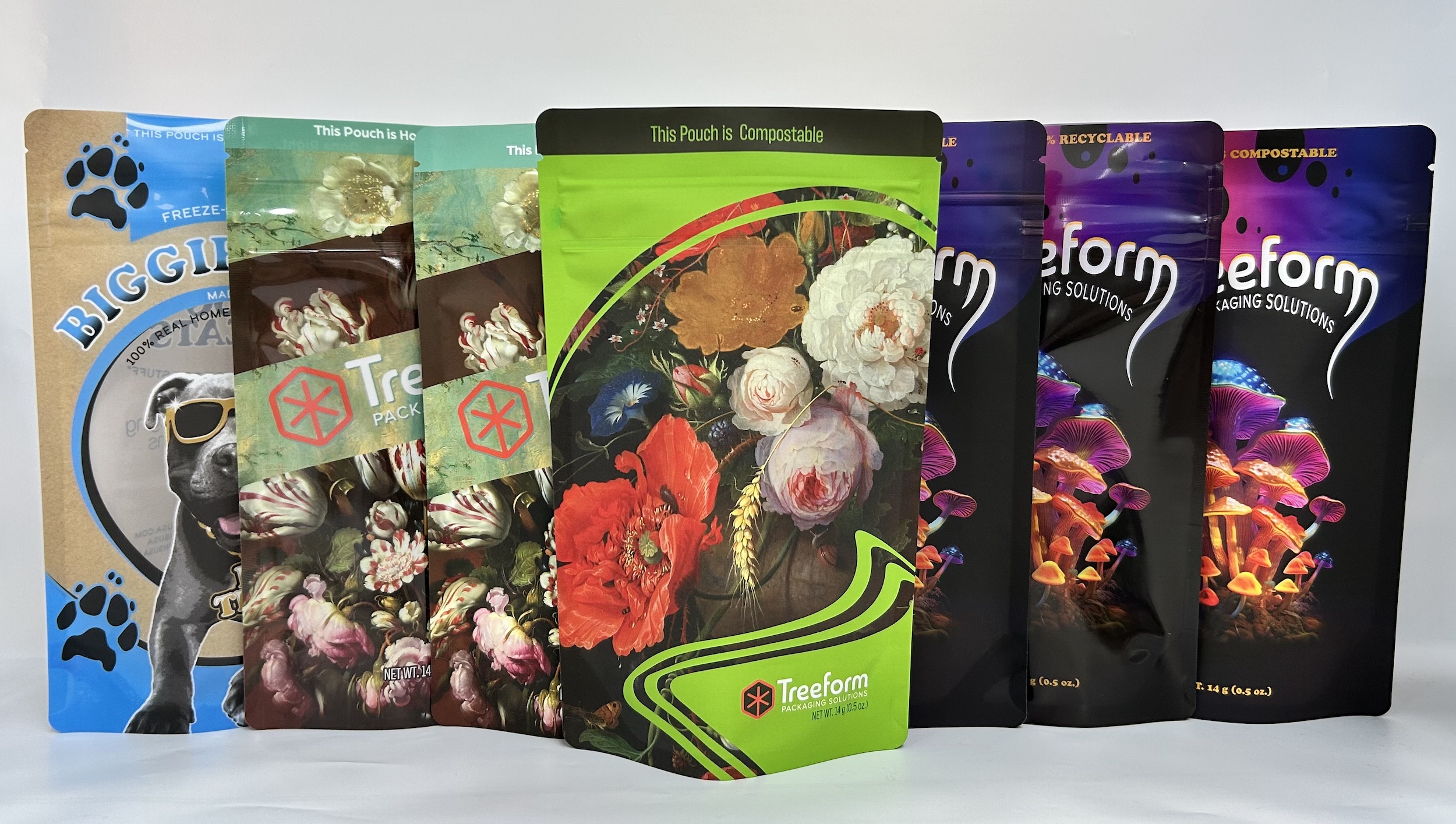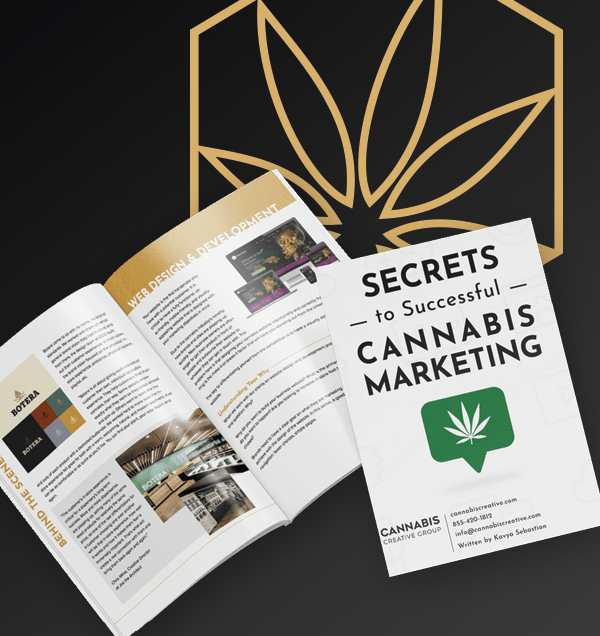A Shopify survey recently found that 43% of shoppers were more willing to buy from brands with sustainability practices such as low-waste business operations and carbon-neutral shipping. Consumers are demanding more emphasis on sustainability, reducing waste, and a smaller carbon footprint from the brands they shop from.
And in the cannabis industry, it’s been a fatal flaw.
As even businesses turn their heads toward sustainability initiatives, the cannabis industry must get on board or get out. This includes practices that contribute to less waste, such as compost programs, using renewable energy, sourcing sustainable materials, adopting recyclable packaging, reducing emissions, and more.
In New York, environmentally friendly packaging is more important than ever.
The Problem with Plastic Packaging
Traditional plastic packaging has always been a villain in the world of environmentally-conscious business practices. Simply producing plastic packaging contributes to excess pollution, waste, greenhouse gas emissions, and more – all significantly compounding climate change.
Since plastic packaging is non-biodegradable, it often finds its way into landfills, water bodies, and the environment, causing harm to wildlife and disrupting ecosystems.
In the context of cannabis, the increasing demand for legal cannabis products has led to a surge in single-use plastic packaging. Add in the rapid growth of the industry, and suddenly, we’re contributing to a major plastic waste crisis.
As the industry experiments with sustainable alternatives to single-use plastics, the question becomes how we can encourage everyone to align with the mission. New York thinks it has the answer.
New York’s Eco-Friendly Cannabis Packaging Mandate
In 2022, the New York Cannabis Control Board released its proposed cannabis packaging regulations. In it were some progressive requirements around the mandatory use of sustainable packaging.
Namely, “cannabis product packaging cannot be made of any plastic, unless that plastic contains a minimum 25% post-consumer recycled content. Licensees must comply with this requirement by January 1, 2024, unless otherwise authorized by the Board.” This requirement was to apply to all packaging, including retail exit packages, product packages, and more.
Now, as the January 1st deadline approaches, many New York manufacturers are scrambling to get up to date.
The 25% Exception: What is post-consumer recycled plastic?
Post-consumer recycled content, often referred to as PCR, is material that is made from the items that consumers recycle every day. Think of the aluminum, cardboard boxes, paper, and plastic bottles you toss into the recycling bin. These materials are collected by recycling programs and shipped to facilities to be sorted and grouped.
The bales are then purchased, melted, or ground into small pellets, and molded into new items, such as your cannabis product packaging. PCR is preferred by businesses because it offers eco-friendly flexible packaging, and can be developed into a variety of forms – stand-up pouches, lay flat pouches, pre roll tubes, etc. – without compromising the quality of typical plastic packaging.
PCR film can offer the same level of protection, barrier performance, and strength as regular plastic film. In other words, it still blocks light, oxygen, and other gasses from penetrating the package layer and getting into your product – which is critical for cannabis manufacturers.
Moreover, using PCR packaging is an easy entrance into the world of recyclable plastics and sustainable packaging. According to the U.S. Plastic Pact, manufacturing products with PCR packaging “reduces energy consumption by at least 79% and reduces [greenhouse gas] emissions by at least 67%.” This type of packaging also has no requirements or actions needed on the consumer end, unlike recyclable and compostable packaging which ultimately needs consumers to sort them in the recycling or compost bin appropriately.
To this end, New York is likely trying to reach its goals to reduce economy-wide greenhouse gas emissions 40% by 2030 and no less than 85% by 2050 from 1990 levels. (The state’s Climate Act is among the most ambitious climate laws in the world).
Industry Response

As many cannabis companies are evolving and placing an emphasis on sustainability initiatives, we’re proud to work with clients who are making it a priority.
Lucky Green Ladies is a cannabis dispensary that recently launched a recycling program as part of their delivery service. Here’s what the team has to say about it: “Lucky Green Ladies is committed to being green across all our operations. From our hybrid electric vehicles to our ocean-bound packaging, sustainability is central to who we are.”
- “Identifying our packaging factories’ carbon footprint and sources of direct and indirect emissions.
- Requiring that our factories establish an emissions reduction goal for their operations (through new business models, manufacturing materials, and ancillary factories and services).
- Enacting sustainability efforts and practices through vetted resources and services.”
Canna Companion, a premier CBD brand for pets that we’ve worked with for years, says “While our internal recycling center helps catch packaging waste, with the newest evolution of our packaging we wanted to go one step further and utilize a material that is 100% recyclable indefinitely — glass.”
Environmental Benefits of Plastic-Free Packaging

Plastic-free packaging isn’t just one of those sustainability goals that sound good; it makes a real difference.
Plastic-free packaging – even 25% less – helps reduce plastic pollution which can drastically shift the threat to our aquatic and land-based wildlife. It also extends resource and energy savings as plastic-free materials tend to require less energy and resources to produce.
As New York and other states begin to take a closer look at how regulations can force the industry to become more environmentally conscious, we have to realize that plastic-free packaging is the least we can do. In other words, these are generous rules when you look at the effects of climate change.
Compliance with evolving regulations can further establish the industry’s commitment to long-term sustainability, creating a balance between our economic growth and ecological responsibility.

Stay up to date with cannabis industry packaging rules and regulations
Sustainability and environmental justice are important to all of us here at Cannabis Creative. We’re proud to work with companies like Lucky Green Ladies, Canna Companion, Treeworks, and more who prioritize sustainability in their businesses, from packaging and beyond.
Whether you’re a plant-touching business or an ancillary business, you can all make a direct impact in shaping the future of the cannabis industry. As much as we like to grumble about the restrictive marketing regulations, packaging rules have an important role to play in designing ethical sustainable practices that truly make a difference.
We encourage ongoing dialogue and innovation to make this industry a better one to do business in. To continue to stay up to date on topics like this and more, subscribe to our newsletter and get the low-down on legislation, marketing tips, advocacy, and more.
